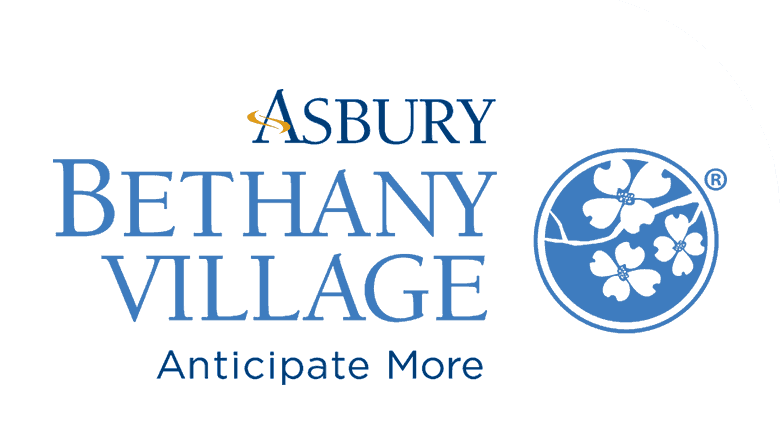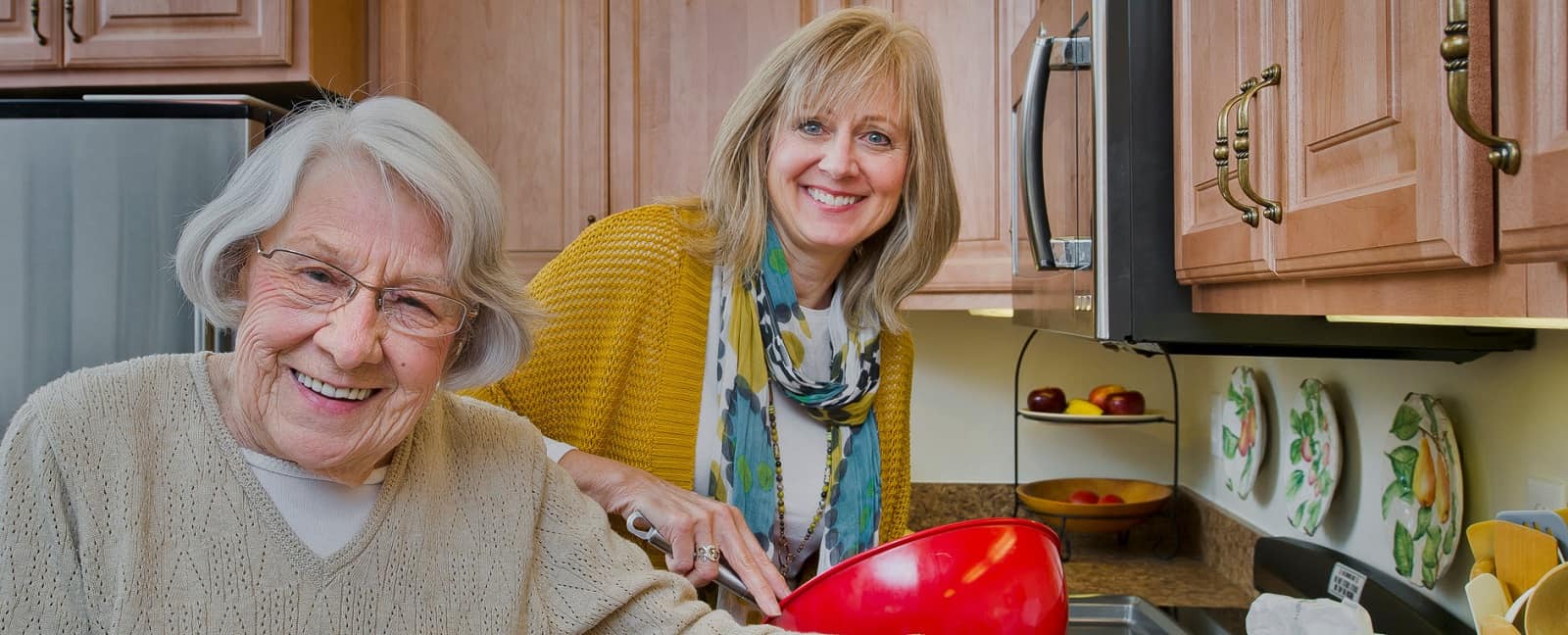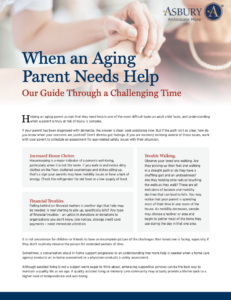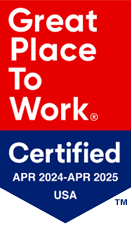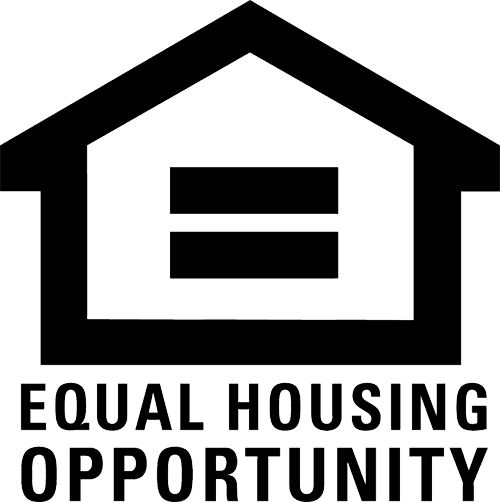Understanding Your Aging Parent’s Needs
Helping an aging parent accept that they need help is one of the most difficult tasks an adult child faces. Understanding when a parent is at risk of injury is equally complex.
If your parent has been diagnosed with dementia, the answer is clear: seek assistance now. But if the path isn’t so clear, how do you know when your concerns are justified? Don’t dismiss gut feelings. If you are noticing several of these issues, work with your parent to schedule an assessment for age-related safety issues with their physician.
- Increased House Clutter. Housekeeping is a major indicator of a person’s well-being, particularly when it is not the norm. Dirty clothes on the floor, cluttered countertops, and dishes piling up are signs your parents may have mobility issues or a lack of energy. Check the refrigerator for old food or a low supply of food.
- Trouble Walking. Is your loved one picking up their feet and walking in a straight path or do they have a shuffling gait and an unsteadiness? Are they holding onto rails or touching the walls as they walk? These are all indicators of balance and mobility declines that can lead to falls. You may notice that your parent is spending most of their time in one room of the house. As mobility decreases, people may choose a recliner or area and begin to gather most of the items they use during the day there.
- Financial Troubles. Falling behind on financial matters is another sign that help may be needed. Is mail starting to pile up, specifically bills? Any type of financial troubles – an uptick in donations or donations to organizations you don’t know, late notices, strange credit card payments – need immediate attention.
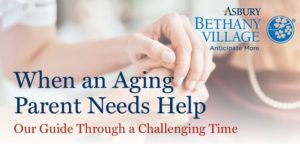
It is not uncommon for children or friends to have an incomplete picture of the challenges their loved one is facing, especially if they don’t routinely observe the person for extended periods.
Sometimes, a conversation about in-home support progresses to an understanding that more help is needed when a home care agency conducts an in-home assessment or a physician conducts a safety assessment. Contact Asbury Home Services for your free consultation.
Embracing assisted living and supportive services can be the best way to maintain a quality life as we age. A quality assisted living or memory care community may actually provide a lifeline back to a higher level of independence and well-being.
The Keys to Quality Assisted Living
- Cleanliness and Infection Prevention: In these days of COVID-19, rigorous infection-control measures are paramount. Does the campus have strong screening measures for associates and visitors? Can the staff easily explain their infection-control and prevention measures? Selecting a community that is part of a larger system helps ensure access to needed resources. These includes personal protective equipment and dedicated clinical leadership. General cleanliness is an important quality indicator. The main lobby, common areas, dining rooms and hallways should be odor-free, clean and not cluttered with unattended carts, wheelchairs and other objects.
- Staff interactions – dignity is key: Person-centered services mean treating residents as adults and caring about their well-being. Are staff members calling residents by their name? Are they greeting residents they pass in the hallways and offering assistance to someone who looks like they may need help? Do they knock before entering someone’s room? Look for residents who are out and engaged, having conversations with each other or staff or attending resident programs. Program calendars should address all the dimensions of wellness – social, physical, intellectual, and spiritual – and you should see flyers promoting upcoming events, including virtual. Ask how family members are included in operations, from scheduled family meetings to newsletters and updates.
- Credentials Matter: Are all of the community’s caregivers credentialed, either at the geriatric nursing assistant or certified nursing assistant level and above? Certified dementia practitioner is an added level of training in memory care. Staff should include registered nurses and delegating nurses, which have credentials above the RN level and provide full care management.
- ‘Hidden’ Fees: At some communities, all utilities, housekeeping, laundry, meals and basic care needs such as medication management are included. Some communities charge a la carte. For instance, housekeeping, medication management and utilities may be excluded. These add up. Ask the admissions counselor and read the fine print.
- Understanding Level of Need: If a parent is not able to feed themselves or facing significant cognitive declines, they may need a more structured setting than assisted living can provide. A good rule of thumb is that someone should be able to be safe for several hours on their own – to know that if there’s a fire, they need to call for assistance, or that they have trouble standing and need to call someone for help before they get up.
MapleWood Assisted Living at Bethany Village is standing by to help. Please call or contact us online
